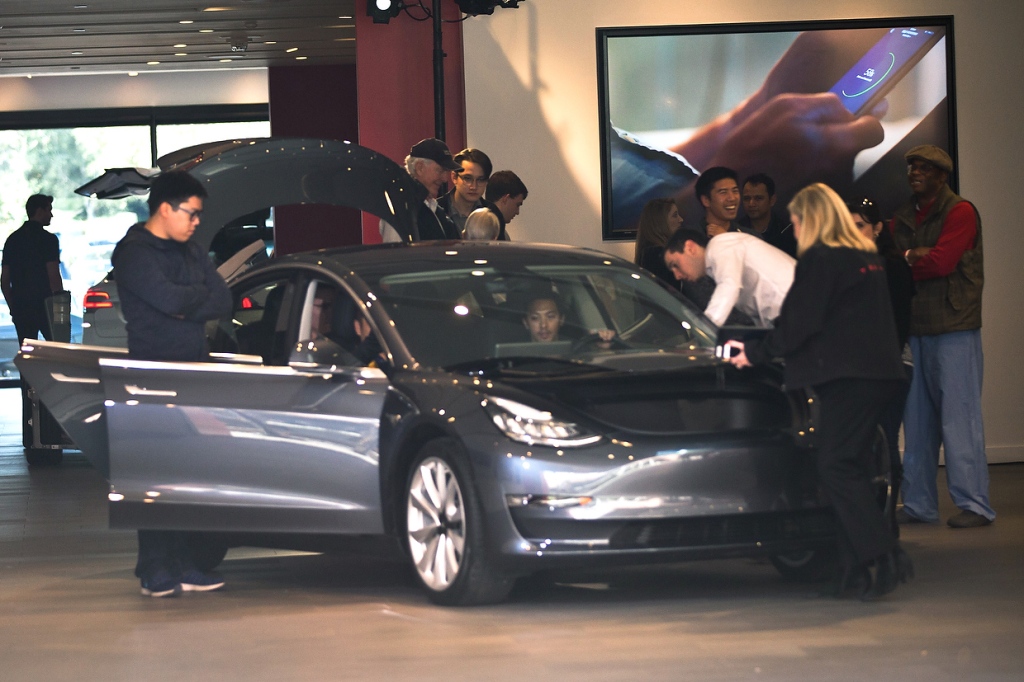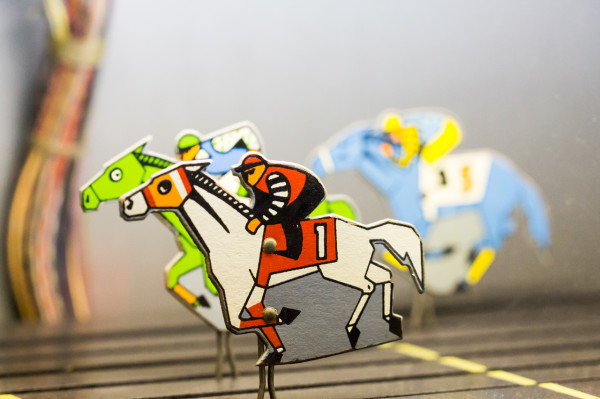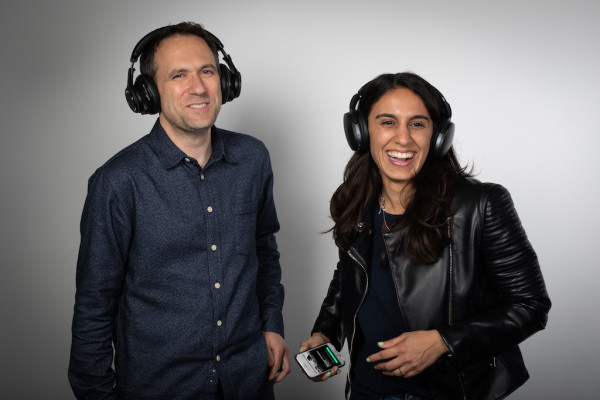Electric car maker Tesla has issued its fourth recall in two weeks, with federal authorities saying an external-loudspeaker function violated a federal traffic-safety rule.
The recalls, driven by government interventions, customer complaints and findings by automotive experts, bring Tesla up to 11 recalls in less than four months. The company, which recently moved its headquarters from Palo Alto to Texas and makes most of its cars in its Fremont factory, did not immediately respond to a request for comment.
Tesla’s latest recall concerned a “Boombox” feature that lets car occupants play pre-set or custom sounds through the speaker while in motion or parked, and the noise could obscure the sound electric and hybrid vehicles must make under a federal pedestrian-protection rule, the National Highway Traffic Safety Administration said in a recall advisory made public Thursday. The agency noted that the Boombox feature could “enhance the conspicuity of the vehicle to pedestrians,” but that pedestrians might not notice an approaching vehicle if the mandated warning sound – which comes through the same speaker – is drowned out, “increasing the risk of a crash.”
The nearly 600,000 potentially affected vehicles are 2017 to 2022 Model 3s, and 2020 to 2022 Model Ss, Xs and Ys, the agency said. Tesla began offering the Boombox function via remote software updates in December 2020, and three weeks later, the agency began investigating whether it complied with the pedestrian-safety rule. After a year of wrangling with the agency, Tesla late last month “decided to voluntarily recall and disable Boombox functionality in drive, neutral and reverse modes,” the agency said, adding that the company would disable the function via a software update.
Tesla’s previous recall, of 2021 and 2022 Model 3s, Ss and Xs, and 2020 to 2022 Model Ys with a software glitch potentially preventing proper windshield defrosting, was driven by customer complaints about problems in extremely cold weather, the agency said. This problem, affecting up to 27,000 cars, will also be remedied via a software update, the agency said.
Another recent recall concerned an audible chime that may not have sounded when a vehicle was started but the driver was not buckled in. The problem was identified in early January by the South Korea Automobile Testing & Research Institute, and potentially affected more than 800,000 vehicles, the agency said. The recall applied to 2017 to 2022 Model 3s, 2021 and 2022 Model Ss and Xs, and 2020 to 2022 Model Ys, and was also to be conducted via a software update.
The fourth of the recent set of recalls related to Tesla’s limited-release “beta” version of its automated-driving system, which under certain conditions allowed cars to roll through four-way stops at up to 5.6 mph, the agency said. Tesla had released the option in October 2020 to some owners, but after two meetings this year with agency representatives, agreed January 20 to a recall, and will disable the feature via a software update, the agency said. Affected vehicles are certain 2017 to 2022 Model 3s, 2016 to 2022 Model Ss and Xs, and 2020 to 2022 Model Ys, the agency said.
Since late October, Tesla issued seven additional recalls, covering problems in various vehicles with airbags, suspensions, braking, trunk lids and rearview cameras.
Recalls are a normal and necessary element of auto manufacturing, but the number Tesla has issued in a short period of time may raise concerns, said Brian Moody, executive editor at online marketplace Autotrader. Most motorists interested in buying or keeping Teslas are not likely to be deterred, as the recalls do not involve wide-scale deficiencies that have caused injury or death, Moody said. But competition among electric car makers is heating up, with major firms expected to be offering strong alternatives to Teslas by next year, and the flurry of recalls could inflict minor damage on Tesla’s market position, Moody said.
The recalls, Moody believes, suggest Tesla is “not that concerned with the rules in general,” and he noted that CEO Elon Musk, notorious for feuding with authorities, has built a successful car company in a relatively short time in part by pushing against government-imposed limitations.










